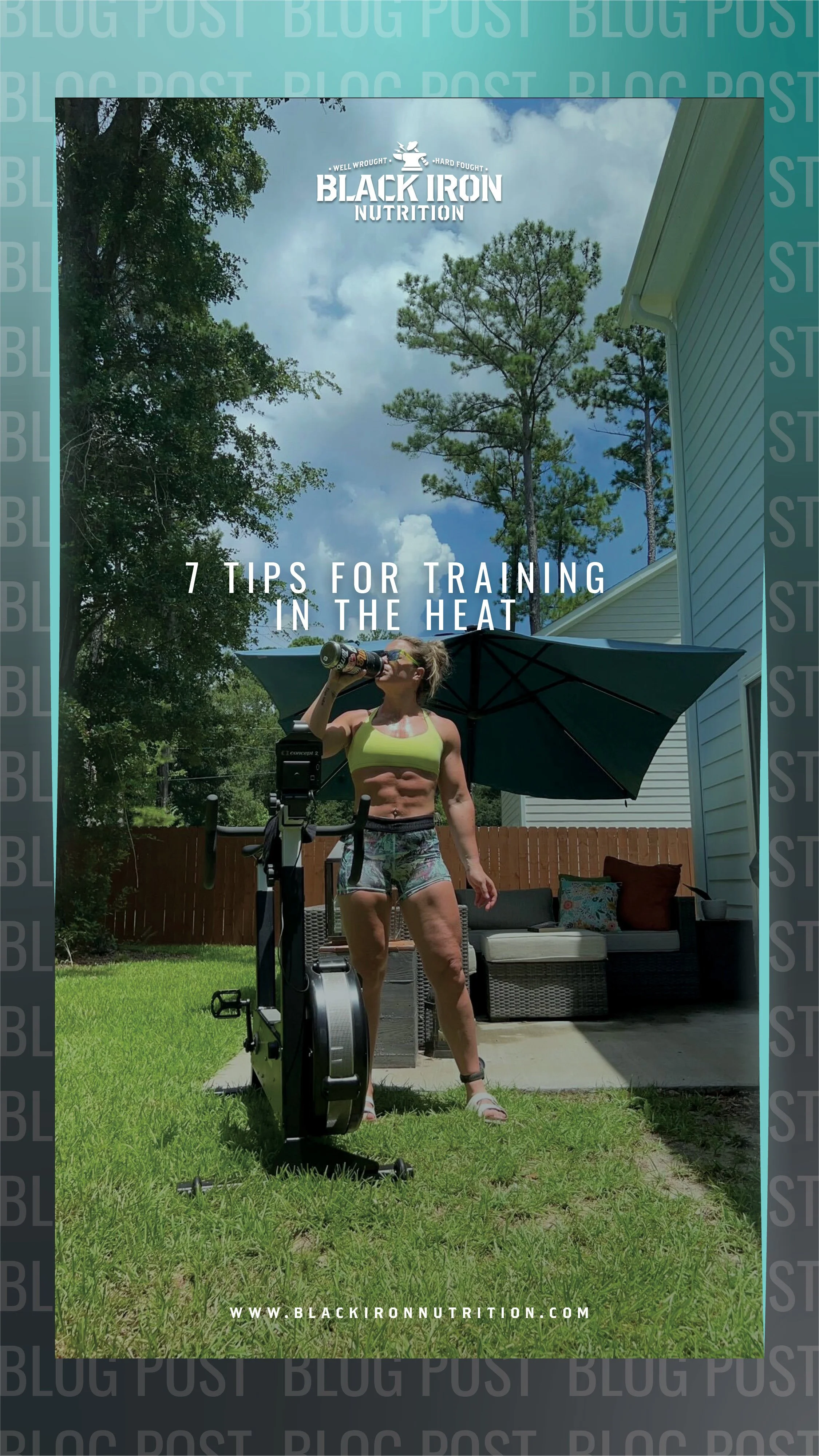7 tips for training in the heat
Training in the heat can be challenging, especially if you aren’t used to it. When Black Iron Nutrition coach Amanda May moved south she realized pretty quickly that she was going to need a game plan for managing the heat; from hydration to meal timing, training volume to straight up managing her performance expectations. Similar to acclimatizing for high elevation, our bodies need to do the same thing for heat. Here are 7 things to focus on to help you train in the heat and humidity:
1. HYDRATION: Start hydrated - you should be drinking water regularly throughout the day, not just when you’re physically active. In extreme heat conditions, 100-120+oz/day is a good goal. Consume water throughout the duration of your training; sip frequently, avoid chugging. Your intake should be happening long before you FEEL signs of dehydration; if you have symptoms, it’s already too late.
2. ELECTROLYTES: For longer / more intense exercise and/or if you are a particularly sweaty human, electrolyte supplementation is the move. Electrolytes are crucial for muscle contraction, fluid balance / transfer, and nerve impulses. If you’re drinking straight water and not replacing electrolytes lost through sweat, your performance will certainly suffer. In fact, if you continue to drink straight water after you’ve lost a considerable amount of sodium, you risk hyponatremia (too much water, not enough sodium in the blood). Symptoms include: nausea, headache, confusion, and fatigue. There are tons of electrolyte products out there - experiment a little bit to see what works best for you!
3. MEAL VOLUME/TIMING: A lot of people find they are just not that hungry when it’s super hot out. Skipping meals is never a good idea, but skimping out on your carbs can actually make it easier for your body to dehydrate For every gram of glycogen you store, you’re also storing ~3-4g of water with it. If you ever needed a reason to NOT cut carbs, this is it!!!
So what can you do to make sure to fuel your body properly without adding digestive stress on top of heat stress?
Eat smaller meals, more frequently - think low volume, high energy
Eat further from your workout - digestion slows in heat as your body is diverting a lot of energy to cool your internal temperature
Consume cold and water-dense food (like fruits and veggies)
Drink your calories, especially peri-workout - I like to combine some carbs with electrolytes in my intra-workout shake.
4. MANAGE TRAINING VOLUME AND INTENSITY: In high heat conditions, you are expending more energy per rep / minute of exercise. Recovery is harder because you’re adding in additional stress to an already stressful stimulation. Even slight dehydration reduces performance potential. How heat impacts your personal performance will be variable, so pay attention to your body’s cues. If you’re feeling unwell and questioning whether or not you should continue to exercise, ya probably shouldn’t!
5. MANAGE YOUR EXPECTATION: This was HUGE for me. You just may not physically be capable of high percentages / intensity some days. That’s okay. Live to fight another day vs. suffering from a heat-induced health event and having to sit on the sidelines for an extended period.
6. REST MORE: Don’t try to be the fitness hero during a heat wave. Take rests when you need them! If you feel any signs of overheating (dizziness, nausea, vomiting, cramping, abnormally rapid heartbeat / breathing, chills, etc) - TAKE A BREAK.
7. FINALLY, DON’T STOP TRAINING: The goal is Heat Acclimatization. By gradually increasing the intensity and duration of your fitness in a hot environment, you will biologically adapt to improve your heat tolerance. On average, it only takes about 1-3 weeks to acclimatize, which is great news for this Wisconsin transplant! The more consistently you train, the quicker it will go. This process can also be slowed without proper hydration, so say it with me now: DON’T HATE, HYDRATE!
Train smart, be patient, and stay cool out there, fam!
Written By: Amanda May, Nutrition Coach

